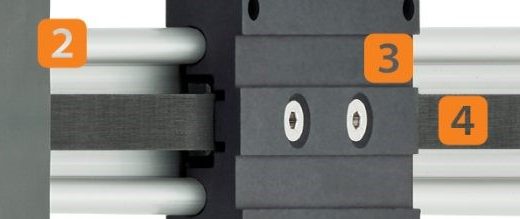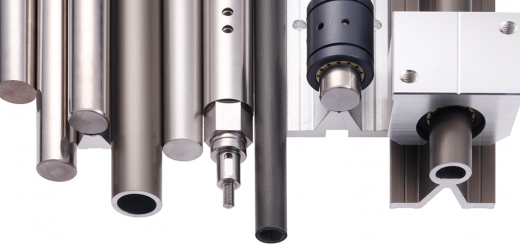Why blockchain is the next frontier for the IIoT
By Jared Worth
When most people think of the blockchain, cryptocurrencies or NFTs are likely to be the first thing that comes to mind, and for good reason. The crypto space is larger than it’s ever been, and has spent the past few years garnering mainstream attention. But blockchain technology can be used for other lesser known applications, most promising of which is integration with the Industrial Internet of Things (IIoT). This blog will go over why the blockchain is beneficial to the IIoT, as well as examples of applications combining the two.
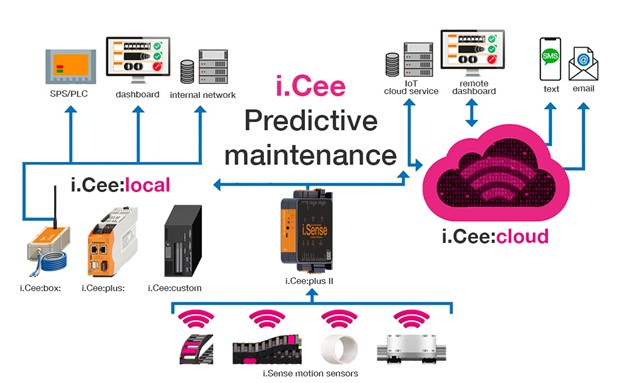
What is the blockchain?
The blockchain itself is an immutable, shared ledger that can be used to track and record assets and transactions. These assets can be nearly any physical or digital product. What makes the blockchain unique is the fact that it’s immutable. This is achieved through the way transactions are recorded; each transaction is recorded as a “block”, and contains whatever relevant information is needed. Each new block recorded is linked in a cryptographically secured manner to the block before and after it, with exact timestamps to confirm when the transactions took place. As more blocks are added, the chain (hence blockchain) grows larger, and becomes more secure. Once a transaction is recorded it can’t be reversed—the only way to achieve that would be to record new transactions that reverse the outcome of the original. Each transaction would be permanently linked in the blockchain though, and could be referred back to at any time1.
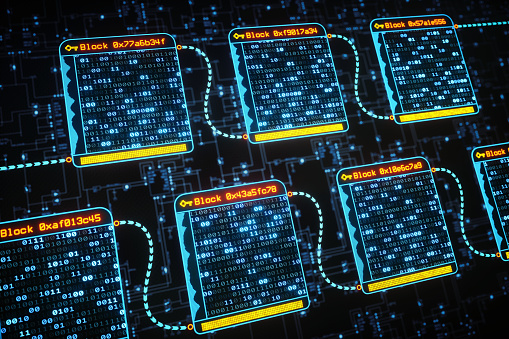
So how does this help in the world of the IIoT? Simple: the IIoT is built around the collection, storage, transfer and application of data through condition monitoring and predictive maintenance. With the blockchain, this data can still be handled as it normally is, but with the added security and efficiency that the blockchain provides. No single user can make edits to previously recorded blocks, so anyone viewing those transactions and info can be sure of their validity. Additionally, transactions can be easily viewed by any members of the network, improving transparency and eliminating redundancies.
Smart Contracts
Before diving into potential applications of blockchain-based IIoT systems, it’s important to understand smart contracts and how they work within these applications. Smart contracts are one of the key functionalities provided by the blockchain. Simply put, a smart contract is an automated “contract” that is carried out when certain criteria are met2. For example, a smart dishwasher connected to the blockchain could automatically place an order for dish detergent when it runs low via a smart contract. A vending machine could even be used as a basic model for a smart contract: when the specified criteria is met (money being inserted and a button selected), an automated action is performed (dispensing food/drinks)3. Since the process is automated and based upon predetermined criteria, concerns over accuracy and timeliness are eliminated.
Applications of the blockchain in IIoT systems
Finally, it’s time to go over specific ways in which the blockchain can be implemented and integrated with the IIoT to create more efficient information networks. Food production is a major industry that blockchain-based IIoT technology could revolutionize. As an example, imagine a foodborne illness has contaminated food products somewhere along the supply chain. Once it’s discovered that the food is contaminated (usually after consumers start to get sick), extensive time needs to be taken to determine exactly which food products were contaminated, and when. While this is happening, more people could unknowingly purchase the contaminated food and get sick. A blockchain-based system would make finding the origin of the contamination simpler and quicker than it ever could be before. With detailed record keeping throughout the supply chain via components with smart sensors that utilize condition monitoring, the blockchain would allow surveys to be carried out which consider factors like where and when the contaminated food was purchased or consumed and the number of people getting sick to pinpoint exactly when and how the contamination started to allow swift action to be taken4.
Smart grids are another application area that would greatly benefit from the blockchain. Smart grids are a decentralized, peer-to-peer alternative to traditional power grid systems, allowing individuals to generate and sell electricity rather than large power companies being the sole source of electricity5. Most small-scale power generation uses renewable energy sources like solar or wind, making them more environmentally friendly than larger power generators.
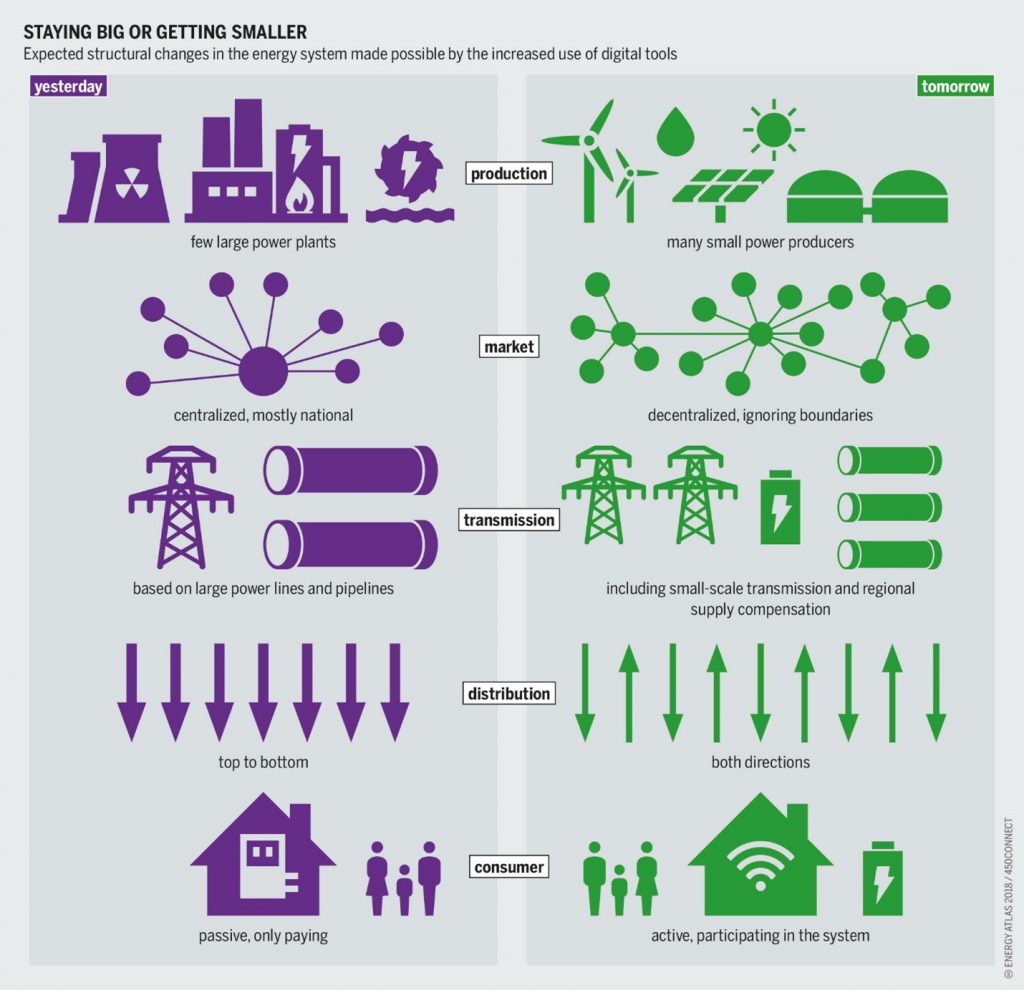
An essential factor in making smart grids viable is the IIoT. Smart meters outfitted with IIoT sensors can communicate via cellular and radio frequency technology to automatically reroute power if there’s an outage, without requiring personnel to do so in person. These sensors constantly provide data on power usage and demand as well, so power suppliers can respond to or predict rapid changes in demand more easily than they could in traditional power grids6.
Smart grids use prepaid pricing models, so there needs to be a way to ensure electricity is delivered after payments are made. This is where the smart contract comes in. With smart contracts, both payment and delivery of electricity are automatically carried out and are visible to users of the blockchain. Disputes can easily be cleared up thanks to how transactions are recorded, and most blockchain networks can even have internal auditing embedded into the framework, making the system even more reliable7.
As the blockchain and IIoT grow, so do the potential applications for each. Integration of blockchain into the IIoT is the logical next step to propel each industry forward, and can turn blockchain into more than just a platform for cryptocurrencies in the eyes of most.
Have questions about implementing IIoT in your application? Speak to an igus expert today, or visit our website. You can also call us at 800-965-2496.
Sources:
1: www.ibm.com/topics/what-is-blockchain
2: www.ibm.com/topics/smart-contracts
3: www.techtarget.com/searchcio/feature/Examples-of-smart-contracts-on-blockchain
4: ieeexplore.ieee.org/stamp/stamp.jsp?arnumber=8917991
5: www.sciencedirect.com/science/article/pii/S1319157819309000
6: www.digi.com/blog/post/what-is-the-smart-grid-and-how-enabled-by-iot
7: www2.deloitte.com/us/en/pages/risk/articles/internal-auditing-guide-to-blockchain.html

